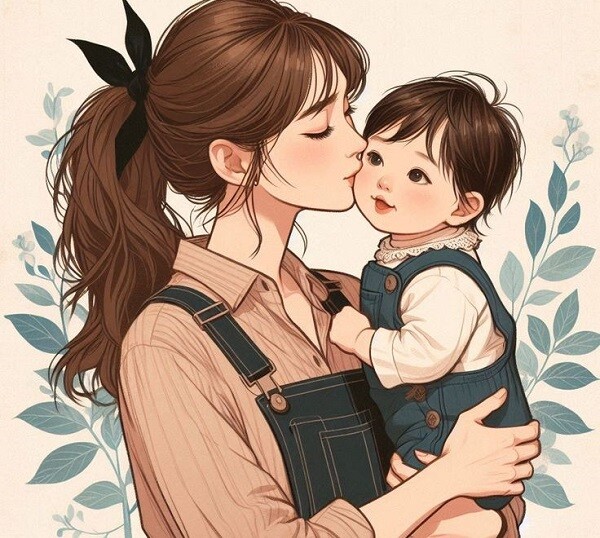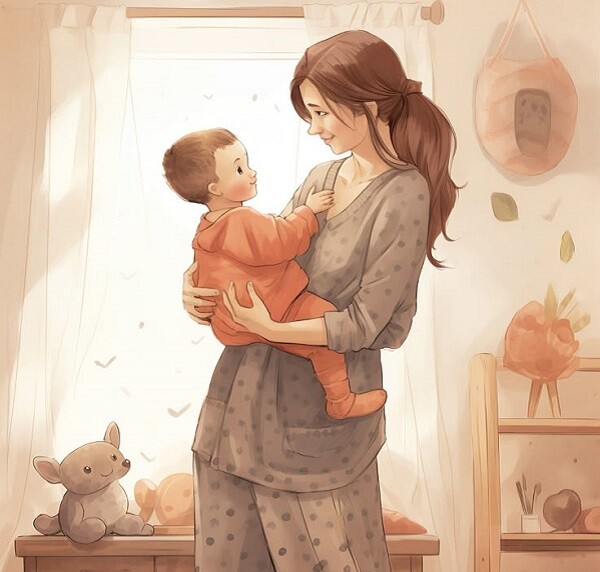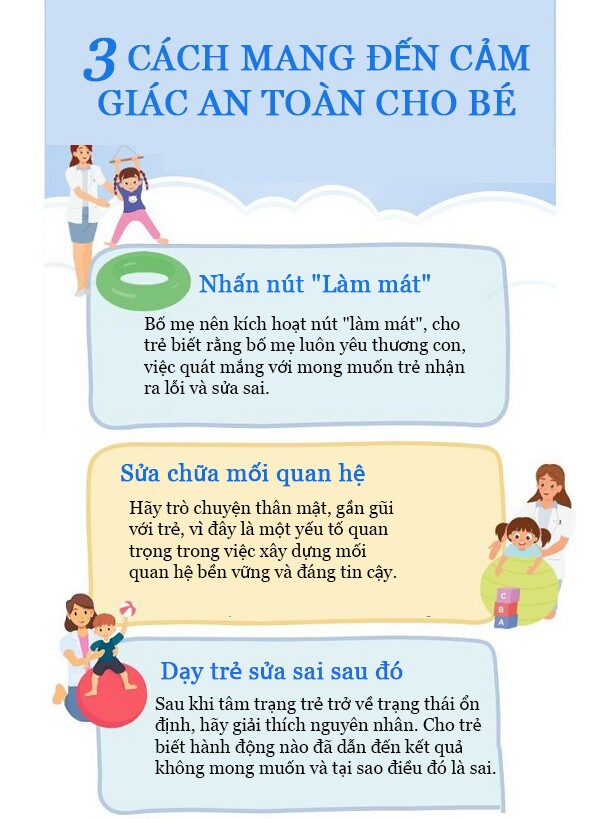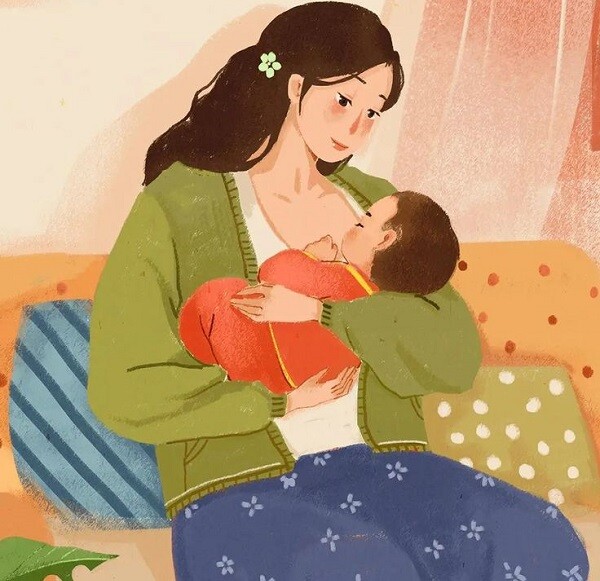Parents should embrace these moments with understanding, helping their children navigate through guilt and develop positively.
A hug can be a starting point for forgiveness, learning, and emotional growth between parents and their children. During such times, children seek comfort and reconnection. Experts also explain this behavior from a scientific perspective.


Why do children want to hug their mothers after being scolded?
In 1969, psychologist Bowlby proposed a concept called ‘A Secure Base.’ This means that young children form an attachment to their caregivers, seeing them as a safe haven. When children play outside, fall, become anxious, fail, feel lonely, or are overwhelmed by challenges, they can return to this base for comfort and motivation.
Translated into adult language, this means that when children know their parents accept this vulnerability, they dare to explore the world with peace of mind.
If a child comes to you for a hug right after you’ve scolded them, it’s a strategy evolved over generations. After all, children need to appease their caregivers for survival.

Experts compare the parent-child relationship to a rubber band. When parents mistreat their children, the rubber band stretches, and children will instinctively “bounce back” to confirm the connection, checking if their parents still love them. Younger children react faster to this.
As for why children don’t “hold a grudge,” it’s because their brains are not fully developed. The basal ganglia, responsible for habits and routines, cannot execute different instructions as expected.
The frontal lobe, responsible for thinking, self-control, and communication, is like a rough house in children and only matures at 25. When scolded, a child’s brain triggers an alarm. But once the alarm is removed, the brain quickly “erases” and returns to a happy, relaxed state.

What should parents do to make their children feel secure after scolding them?
Another study by the University of Cambridge found that children who experienced moderate conflict in a safe environment were 23% better at regulating their emotions by age seven than those who hadn’t.
Children are like clay, not glass. They can be reshaped. According to experts, it’s okay to scold your child sometimes to remind them of their mistakes, as long as you still love and help them understand the issue. This will strengthen your relationship.

Image source: Pinterest.
Press the “Cool Down” Button
If your child looks dazed or sucks their thumb frantically, it means they’re confused from the scolding. Here, parents should activate the “cool down” button, assuring their children of their love and that scolding aims to help them realize and correct their mistakes.
Repair the Relationship
Engage in intimate conversations with your child, as this is crucial for building a strong and trustworthy relationship. These talks help children feel loved and cared for and create a safe space for them to express their thoughts, emotions, and worries freely.
Teach Them to Make Amends
Once your child’s mood has stabilized, explain the reason for the mistake. Clarify which actions led to the unwanted outcome and why it was wrong. This helps children understand the importance of doing the right thing.

Encourage your child to admit their mistakes to develop a sense of self-discipline and responsibility. By observing how you handle conflicts, they’ll learn to soothe their emotions (e.g., deep breathing) and repair relationships better (apologizing isn’t a sign of failure but courage).
The Perils of Puberty: Two Telltale Signs Your Daughter May Be Prone to Early Sexual Activity.
Puberty is an incredibly turbulent time for young people, with an array of psychological and physical changes occurring. Alongside the obvious physical transformations, young girls also experience their first stirrings of romantic attraction. However, acting on these feelings too soon can have unintended and undesirable consequences.
The Parenting Expert: When Kids Act Out, Try the ‘Crow’s Law’ Method
By harnessing the power of the “Crow Law,” parents can unlock a more tailored approach to raising their children. This ancient wisdom offers a unique perspective on child-rearing, empowering parents to foster their offspring’s growth and development in a way that resonates with their individual needs and strengths. It is a tool that, when utilized effectively, can help parents create a nurturing environment that supports their children’s journey towards reaching their full potential.
The 4 Creative Ways to Discipline Your Child That Are 100 Times More Effective Than Scolding
The art of reprimanding your child is an age-old dilemma for parents. This introduction paragraph aims to present a unique and effective approach to disciplining your child, one that is 100 times more effective than traditional scolding methods. Presenting four innovative strategies that will revolutionize how you address your child’s misbehavior and foster a more positive and respectful relationship.







































